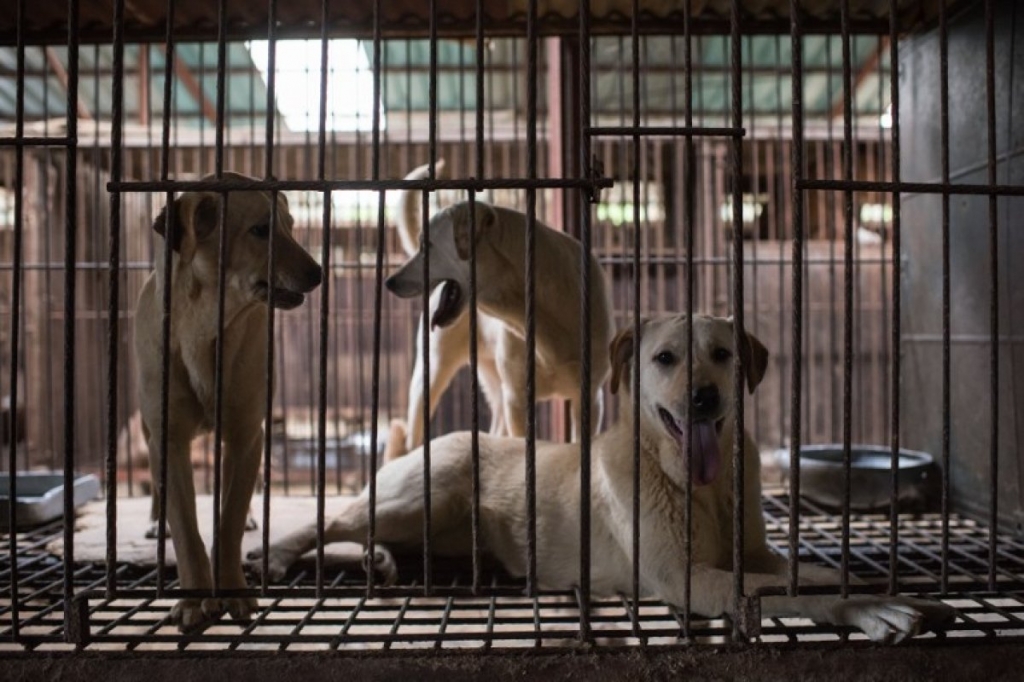-
Tips for becoming a good boxer - November 6, 2020
-
7 expert tips for making your hens night a memorable one - November 6, 2020
-
5 reasons to host your Christmas party on a cruise boat - November 6, 2020
-
What to do when you’re charged with a crime - November 6, 2020
-
Should you get one or multiple dogs? Here’s all you need to know - November 3, 2020
-
A Guide: How to Build Your Very Own Magic Mirror - February 14, 2019
-
Our Top Inspirational Baseball Stars - November 24, 2018
-
Five Tech Tools That Will Help You Turn Your Blog into a Business - November 24, 2018
-
How to Indulge on Vacation without Expanding Your Waist - November 9, 2018
-
5 Strategies for Businesses to Appeal to Today’s Increasingly Mobile-Crazed Customers - November 9, 2018
120 dogs rescued from South Korean dog meat farm bound for NJ
With an able assist from the US-based Humane Society International (HSI), Gong’s business was the fifth largest dog meat farm to close shop this year.
Advertisement
According to HSI, hundreds of thousands of dogs will be slaughtered at this time, as an estimated “60 to 80 percent of the entire year’s dog meat is eaten in just two months, most often at one of South Korea’s thousands of dedicated dog meat restaurants”.
The dogs had faced the horrific prospect of being electrocuted and then butchered for a South Korean summer festival where the meat is believed to have magical blood-cooling properties.
Gabriel Wildgen and Abbey Herbert of the Humane Society International (HSI) transfer a dog from a cage to a crate prior to transport during a publicised rescue event involving the closure of a dog farm organised by HSI in Wonju, south-east of Seoul, April 27, 2016.
On the Korean farm, the dogs lived in a perpetual state of fear and anxiety in cold, raised, metal cages with no cover from bitingly cold temperatures that could drop below freezing.
While it is not common for South Koreans to consume dog meat on an average day, especially among the younger generations, many still participate in the traditions of the Bok Nal.
PIX11 News first reported last month that the Humane Society and the Animal House Project were looking for a place to house all of the animals in the dog airlift. “They will at last get to run and play and know what it feels like to be loved as a family friend”.
On every farm closed so far by HSI, a mixture of breeds has been discovered including large mastiffs, Jindo mixes, golden retrievers, beagles and Chihuahuas.
Most Koreans don’t eat dogs, according to the Humane Society. Each dog sold for about $200, depending on size.
St. Hubert’s Animal Welfare Center is taking in more than 120 dogs that were originally intended for the dinner table in South Korea.
St. Hubert’s has a rehabilitation program for dogs who have had rough lives, including those born at puppy mills or rescued from hoarding situations.
The owner also promised to stop raising dogs for meat and to leave the trade permanently. In February and March, we flew in 79 dogs from the farm and many of them have already been placed in loving homes. “Ultimately we need the South Korean government to get involved in phasing out dog farming and banning dog eating, and with the Winter Olympics coming up in Pyeongchang in 2018, we are urging politicians to work with us to consign the eating of dogs to the history books”.
Advertisement
Some of the dogs are adjusting to their new life well while others are moving more slowly. That’s the collective experience of many decades of learning about & working with dogs.





























